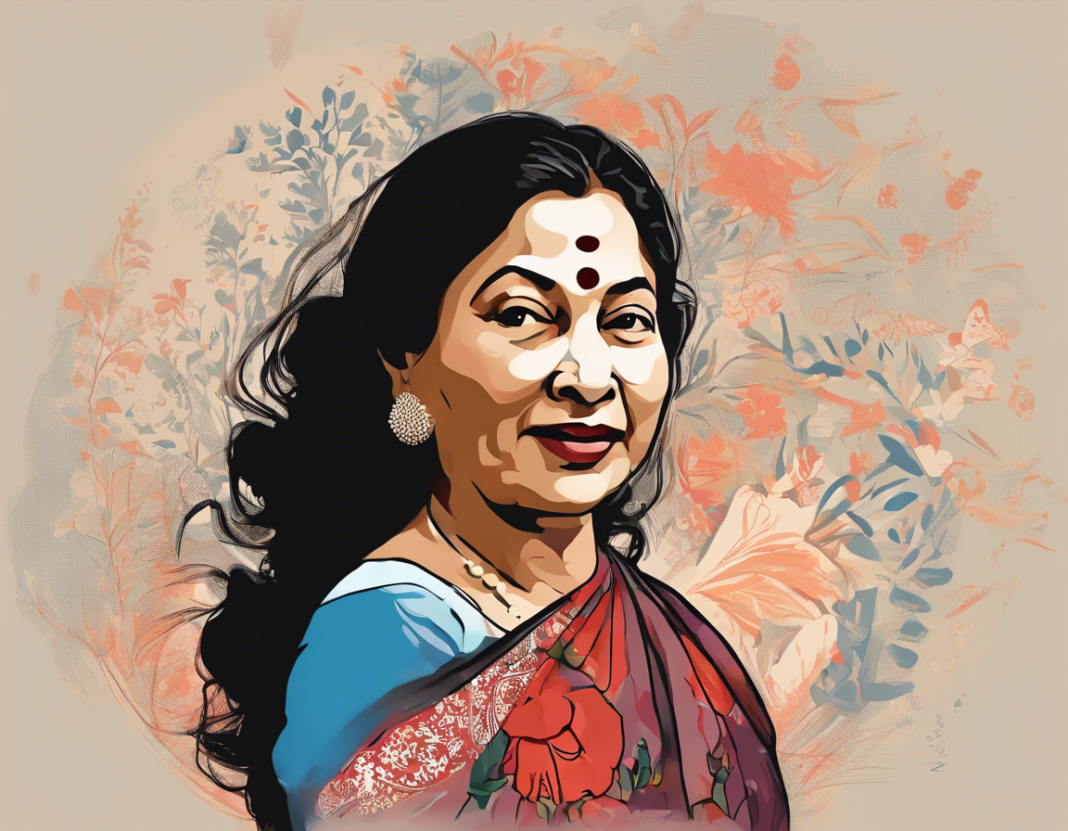Introduction
Shakuntala Devi, popularly known as the “Human Computer,” was an extraordinary mathematical prodigy from India who left a lasting legacy in the field of mathematics. Her exceptional mental arithmetic abilities and unmatched talent for solving complex mathematical problems without the use of any tools or technology set her apart as one of the brightest minds of her time. Beyond her remarkable mathematical skills, Shakuntala Devi was also a successful author, astrologer, and advocate for the importance of mathematics in everyday life. In this article, we will delve into the life and legacy of Shakuntala Devi, exploring her remarkable achievements, contributions to mathematics, and lasting impact on future generations.
Early Life and Rise to Fame
Shakuntala Devi was born on November 4, 1929, in Bangalore, India. From a young age, she demonstrated an exceptional aptitude for numbers and was able to perform complex calculations mentally with remarkable speed and accuracy. Her talents were discovered by her father when she was just three years old, and he began showcasing her abilities at local events and school functions.
By the age of six, Shakuntala Devi had become an international sensation, captivating audiences with her lightning-fast mental calculations. She gained widespread recognition for her ability to compute complicated mathematical problems in her head, earning her the nickname “Human Computer.” Her incredible feats included multiplying two 13-digit numbers in a matter of seconds, extracting the cube root of large numbers instantaneously, and accurately calculating the day of the week for any given date in the past or future.
Mathematical Contributions and Achievements
Shakuntala Devi’s remarkable mathematical abilities were not just limited to performing calculations for entertainment purposes; she also made significant contributions to the field of mathematics. In 1977, she successfully multiplied two 13-digit numbers—7,686,369,774,870 × 2,465,099,745,779—in just 28 seconds, a record that earned her a place in the Guinness Book of World Records as the fastest human calculator.
Her pioneering work in mental math inspired a new wave of interest in mathematics and mental arithmetic, demonstrating the power of the human mind to perform complex calculations with precision and speed. Shakuntala Devi’s ability to break down complex mathematical problems into simple, manageable steps underscored the importance of problem-solving skills and critical thinking in mathematics education.
Legacy and Impact
Shakuntala Devi’s legacy extends far beyond her extraordinary mathematical talents; she was a trailblazer for women in STEM fields and an advocate for the popularization of mathematics as a tool for everyday problem-solving. Through her numerous books, lectures, and public demonstrations, she sought to demystify mathematics and make it accessible to people of all ages and backgrounds.
Her work continues to inspire mathematicians, educators, and students around the world, demonstrating the beauty and power of numbers in shaping our understanding of the universe. Shakuntala Devi’s emphasis on mental math as a practical skill that anyone can develop has resonated with generations of learners, encouraging them to embrace the challenge of solving complex problems with creativity and perseverance.
FAQs
Q1: What made Shakuntala Devi’s mathematical abilities so extraordinary?
A1: Shakuntala Devi possessed an innate gift for numbers, allowing her to perform complex calculations mentally with remarkable speed and accuracy. Her ability to solve mathematical problems without the use of any tools or technology set her apart as a unique mathematical prodigy.
Q2: How did Shakuntala Devi’s work impact the field of mathematics?
A2: Shakuntala Devi’s groundbreaking work in mental math inspired a new wave of interest in mathematics and mental arithmetic. Her innovative approaches to problem-solving and her emphasis on the practical applications of mathematics have left a lasting impact on the field.
Q3: What records did Shakuntala Devi set in mathematics?
A3: Shakuntala Devi set numerous records in mathematics, including the Guinness World Record for the fastest human calculator for multiplying two 13-digit numbers in just 28 seconds. Her unparalleled mental arithmetic skills were a testament to her exceptional mathematical prowess.
Q4: How did Shakuntala Devi promote the importance of mathematics in everyday life?
A4: Shakuntala Devi was a strong advocate for the popularization of mathematics as a tool for everyday problem-solving. Through her books, lectures, and public demonstrations, she sought to demystify mathematics and make it accessible to people of all ages and backgrounds.
Q5: What is Shakuntala Devi’s lasting legacy today?
A5: Shakuntala Devi’s legacy lives on through her groundbreaking work in mathematics, her advocacy for women in STEM fields, and her efforts to make mathematics accessible to a wider audience. Her pioneering contributions continue to inspire mathematicians, educators, and students worldwide.
In conclusion, Shakuntala Devi’s legacy as the “Human Computer” transcends her exceptional mathematical abilities; she was a visionary thinker, educator, and advocate for the power of mathematics to transform lives. Through her indomitable spirit and passion for numbers, she continues to inspire future generations to embrace the beauty and challenges of mathematics with creativity and enthusiasm.
